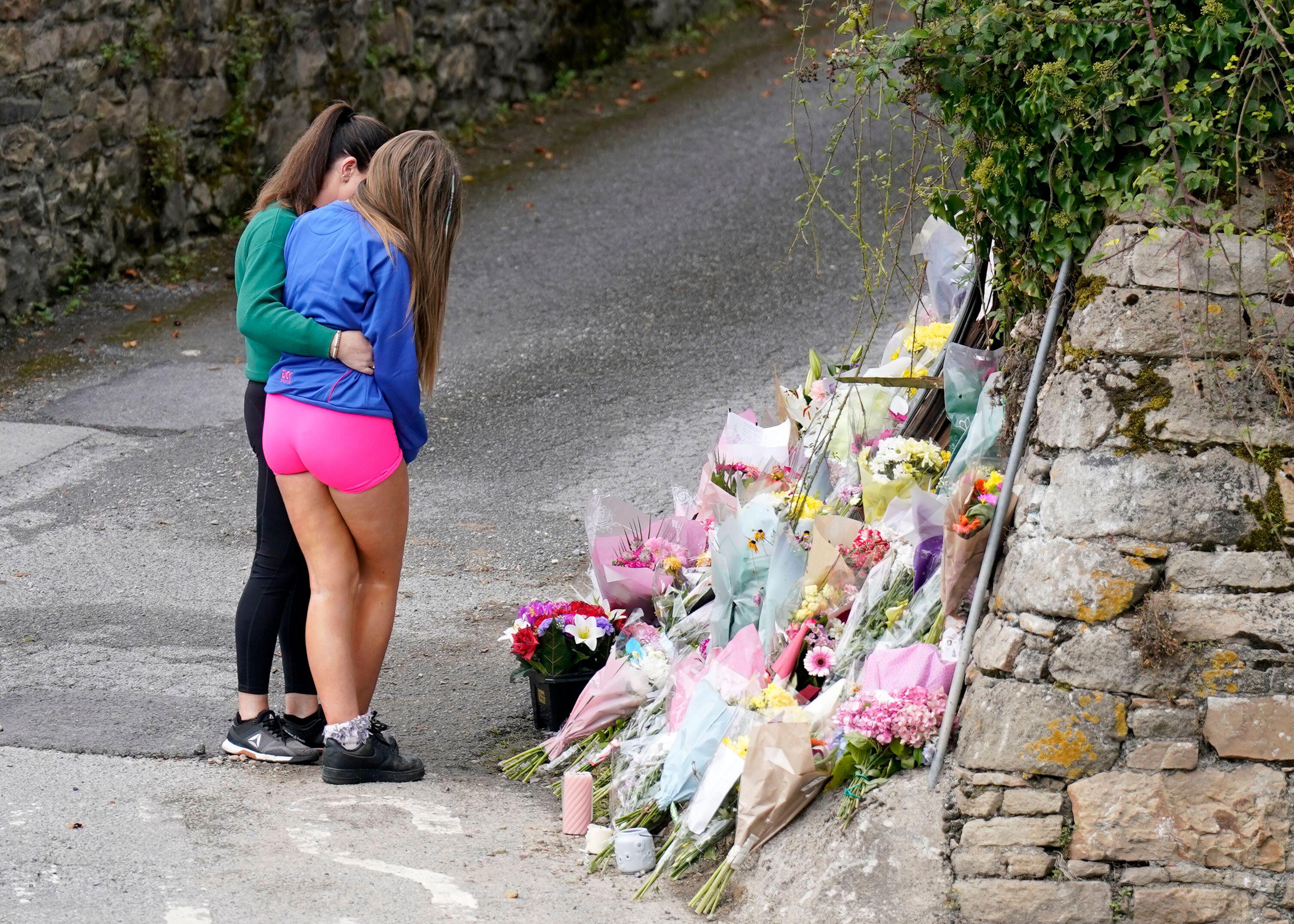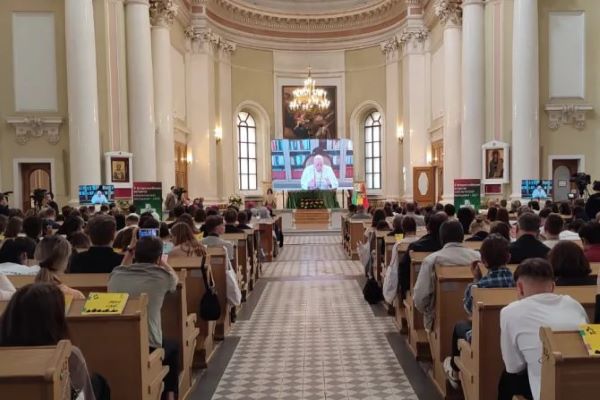The head of the Ukrainian Greek Catholic Church has expressed “great pain” at a message from Pope Francis to a Russian Catholic youth event, which the Ukrainian foreign ministry said repeated “imperialist propaganda”.
The Vatican has said that the message was above all a call to peace and was not intended “to promote imperialistic logic”.
On 25 August Pope Francis addressed attendees at the Russian Youth Day in St Petersburg by video link, urging them to be “sowers of seeds of reconciliation” and “artisans of peace” in comments circulated by the Vatican.
However, additional remarks from his address subsequently published by the Archdiocese of the Mother of God in Moscow reminded them that they were “heirs of the great Mother Russia”.
“You are heirs of the great Russia, the great Russia of the saints, of kings, the great Russia of Peter the Great, of Catherine II, that great, enlightened Russian empire, of so much culture, so much humanity,” Francis said.
Ukrainian commentators condemned the remarks and said they had already been exploited by Russian propagandists.
The Ukrainian foreign ministry spokesman, Oleg Nikolenko, wrote on social media that these were the ideas “which the Kremlin uses to justify the murder of thousands of Ukrainians”.
“It is very unfortunate that Russian great-power ideas, which are, in fact, the reason for Russia’s chronic aggressiveness, are consciously or unconsciously coming from the mouth of the Pope, whose mission, in our understanding, is precisely to open the eyes of Russian youth to the devastating course of the current Russian leadership,” he said.
Major Archbishop Sviatoslav Shevchuk, the head of the Ukrainian Catholic Church, said he was “aware of the deep disappointment that [the Pope’s words] have caused in society”, adding that they referred to “the worst example of imperialism and extreme Russian nationalism”.
In a statement issued on 28 August, he said: “There is a danger that these words could be taken as supporting the very nationalism and imperialism that has caused the war in Ukraine today – a war that brings death and destruction to our people every day.”
Shevchuk said he believed that the Pope had spoken in error as his remarks “actually contradict his teachings on peace, since he has always condemned any form of manifestation of imperialism”.
“In order to avoid any manipulation of the intentions, context and statements attributed to the Holy Father, we await a clarification of this situation from the Holy See,” he said.
The Kyiv nunciature issued a statement the same day saying that Francis “has never endorsed imperialistic notions” and is “a staunch opponent and critic of any form of imperialism or colonialism”.
The Vatican spokesman Matteo Bruni said that Francis had spoken “off the cuff” while encouraging his audience “to preserve and promote all that is positive in the great Russian cultural and spiritual legacy, and certainly not to exalt imperialist logic and government personalities”.
However, the Kremlin has expressed its approval of the Pope’s remarks.
A spokeswoman for the Russian foreign ministry said on 29 August that the government “greatly appreciates the balanced approach of the Vatican on the conflict in Ukraine”, while Vladimir Putin’s spokesman Dmitry Peskov said they showed that Francis “knows Russian history, and this is very positive”.
“Our legacy isn’t limited to Peter or Catherine, it’s much older,” he said. “The duty of the state, of society, of teachers in schools and universities, is to transmit this patrimony to the masses. That the Pope sounds in unison with this duty is very gratifying.”
This controversy follows a busy period of diplomatic activity for the Pope, who has discussed the Russian invasion in a number of recent meetings, including with General Mark Milley, the chairman of the US joint chiefs of staff, during his visit to the Vatican on 21 August.
On 25 August, the same day that he addressed the Russian youth meeting, Francis held an audience with Hungary’s President Katalin Novák, with whom he discussed the humanitarian situation in Ukraine. She presented him with an icon of the Virgin Mary from Transcarpathia, the region of south-west Ukraine with an ethnic Hungarian population.
The Pope’s peace envoy, Cardinal Matteo Zuppi, recorded a message on 27 August for a conference in Venice, emphasising the importance of multilateralism (rather than the domination of single powers) in modern diplomacy.
He said it was essential “to learn to live together in this one boat, this living room of the world, which we have to care for and live in together”.
President Volodymyr Zelenskiy attended an ecumenical service in St Sophia Cathedral in Kyiv on Ukraine’s Independence Day on 24 August.
Archbishop Shevchuk, who also attended the service, published a statement ahead of the occasion emphasising that Ukraine “can only exist in unity” after being “torn apart by various empires that have always wanted to annex some piece of its territory”.
“To be free means more than just not being subjected to foreign oppression or domination,” he said. “It is not enough to be free from something or someone, even when it comes to being free from sin. We need to be free for something.”
He said that ceding territory to Russia to bring peace would only lead to future aggression.



 Loading ...
Loading ...